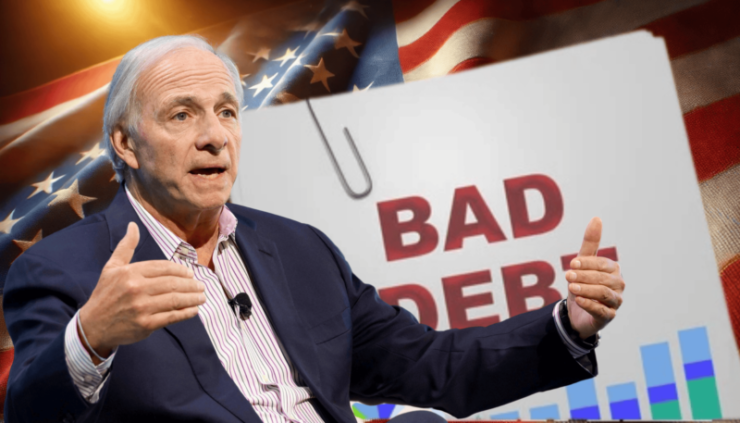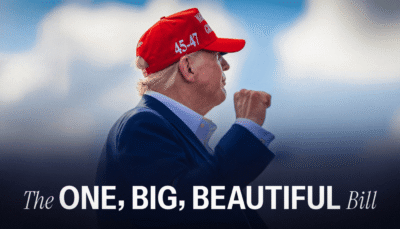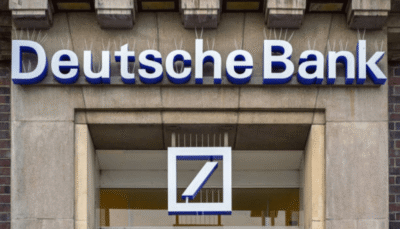Renowned investor Ray Dalio, founder of Bridgewater Associates, has reiterated concerns over the United States’ mounting national debt, warning that a severe supply-demand imbalance could send shockwaves through the global economy.
Speaking at CNBC’s CONVERGE LIVE event in Singapore on March 12, Dalio emphasized that the U.S. is attempting to sell a quantity of debt that global buyers may not be willing to absorb, raising the risk of significant economic instability.
Dalio pointed to the staggering $36.2 trillion national debt and the 7.2% fiscal deficit relative to GDP, arguing that the U.S. government must reduce this to at least 3% to avoid a financial crisis.
He also highlighted trade policy uncertainty and geopolitical tensions as factors contributing to investor unease on Wall Street and global markets. The potential escalation of trade wars—particularly under President Donald Trump’s tariff-heavy approach—further exacerbates economic concerns.
The U.S. hedge fund billionaire stressed that addressing these challenges is paramount, warning that failure to do so could destabilize global financial markets and undermine confidence in traditional fiat systems.
His remarks echo previous concerns financial experts and policymakers voiced regarding America’s growing reliance on deficit spending and the potential long-term devaluation of the U.S. dollar.
“Just as we are seeing political and geopolitical shifts that seem unimaginable to most people, if you just look at history, you will see these things repeating over and over again. We will be surprised by some of the developments that will seem equally shocking as those developments that we have seen,” – Dalio stated

Can Spending Cuts and Tax Adjustments Fix the Problem?
Dalio has been a vocal advocate for what he calls the “3% solution,” a strategy aimed at lowering the deficit from its projected levels to 3% of GDP. His proposal includes spending cuts, tax adjustments, and careful interest rate management to help the U.S. government regain fiscal stability.
He has supported President Donald Trump’s push for interest rate reductions but insists that rate cuts alone will not solve the problem. Without tolerable spending reductions and revenue increases, Dalio stressed that lower interest rates could exacerbate debt concerns rather than alleviate them.
When asked about the impact of government spending cuts, particularly in light of Tesla CEO Elon Musk’s involvement with the Department of Government Efficiency (DOGE), Dalio expressed skepticism. “I don’t see it,” he remarked, arguing that expenditure cuts must be strategic, efficient, and not just symbolic.
He emphasized that a three-year timeline for fiscal recovery is achievable, but only if the focus is on real revenue growth, controlled spending, and maintaining investor confidence in U.S. debt markets.
Could Bitcoin Benefit from Fiscal Instability?
Dalio’s dire warnings directly affect cryptocurrency markets, particularly Bitcoin, which has long been seen as a hedge against monetary instability and excessive debt accumulation.
Investors are already turning to crypto and gold as alternative stores of value, fearing that the U.S. government’s ballooning debt and weakening fiscal policy could lead to long-term inflationary pressures.
In fact, Bitcoin has seen price surges in the past when investor concerns over U.S. fiscal health peaked. With the Federal Reserve facing pressure to keep rates low while the government struggles to control its deficit, Bitcoin could emerge again as a preferred “hard money” asset.
As the U.S. debt crisis unfolds, the crypto community will be watching closely to see if traditional investors diversify into digital assets as a hedge against economic uncertainty.
Quick Facts:
- Ray Dalio warns that federal debt has surged to $36.4 trillion, surpassing the U.S. GDP of $29.1 trillion, creating a 125% debt-to-GDP ratio, which he calls an “economic heart attack” in the making.
- Dalio argues that reducing the deficit to 3% of GDP through spending cuts, tax adjustments, and interest rate management is necessary to prevent a financial crisis.
- Economic instability and fears over excessive debt accumulation could drive investors toward Bitcoin and gold, as cryptocurrencies gain favor as an inflation hedge and alternative store of value.





